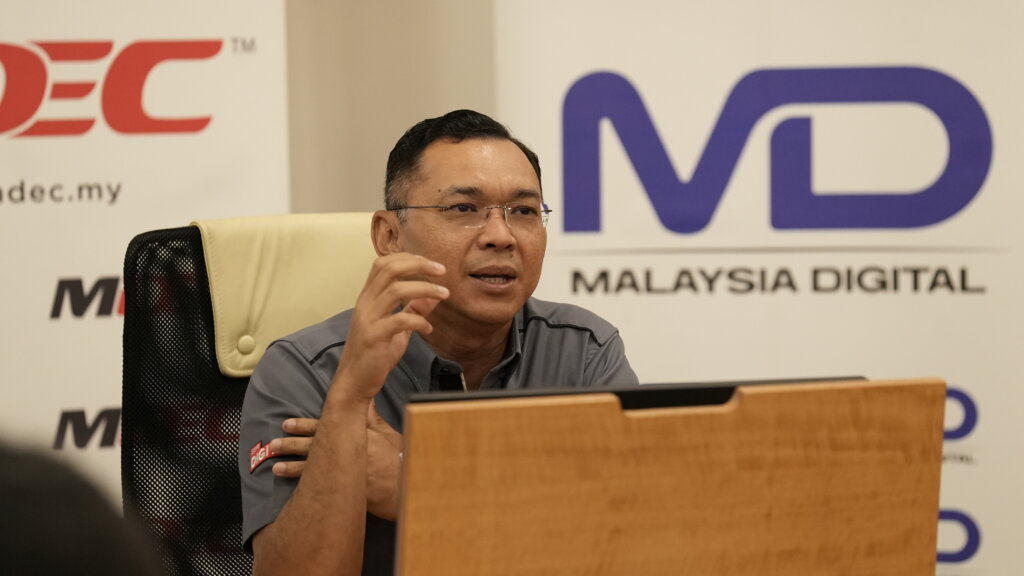
(Source – Shutterstock)
For MDEC, it’s all about creating opportunities
The Malaysian Digital Economy Corporation (MDEC) is a government agency that leads the digital transformation of the Malaysian economy. Like most emerging economies, government agencies and bodies are often set up to assist and enable businesses to achieve greater goals in various sectors. Be it in technology or investments or even healthcare, these agencies are tasked with ensuring goals are achieved.
When it comes to technology and the digital economy in Southeast Asia, each nation has its own agency with its own goals. For example, in Singapore GovTech enables digital transformation within the public sector by harnessing the best info-communications technologies to make a difference in the everyday lives of Singaporeans. This is achieved by focusing on products, and services as well as cybersecurity and governance.
Unlike GovTech, in Malaysia, MDEC’s mission is to drive the digital economy through catalytic high-impact initiatives, strategic and sustainable investments, and inclusive policies. MDEC also aims to establish Malaysia as the preferred hub for world-class businesses and talents and is on track in achieving this.
According to Mahadhir Aziz, MDEC CEO, despite the global economic uncertainties, investments in Malaysia continue to be promising. The agency is expecting US$6.7 billion in revenue from the digital sector and US$3.71 billion in exports within the next three years. This also includes the availability of over 49,000 jobs.
“Digital investments have been good. Malaysia is a preferred destination for hyperscale data centers due to developments in the region. We also have the right infrastructure and energy to support these developments. In fact, 90% of digital investments are in data centers. However, these investments require more jobs which is a challenge. We have to create these jobs,” stated Aziz in a media briefing at their headquarters in Cyberjaya.
Aziz also highlighted that the reopening of China’s international borders could boost economic activities coming into the country. This includes enabling digital economic collaborations with China to leverage their expertise.

Mahadhir Aziz, MDEC CEO
Setting the benchmark.
While the investments are looking good in helping MDEC achieve its KPI, which Aziz himself feels can be set at higher levels, there is still the challenge of bringing out the best in local companies, especially when it comes to tech adoption.
“We want to grow local tech companies. Malaysian tech companies have enough capabilities to compete globally. We want to help them to grow in markets they are in or about to go in,” commented Aziz.
In fact, Aziz believes that there needs to be a biased ecosystem. This includes companies that should be and can utilize locally made solutions. Simply put, Aziz hopes that there will be a mindset change when it comes to using local tech products. He added that procurement policies can also be both a cause and a solution when it comes to businesses using local tech.
“I believe local tech companies are good enough. However, we need to know the universe of the tech companies of Malaysia, table them up, and hear them, from revenues to exports as there is no data for this. We need to know what we have. If they are not good enough, we can work with them to improve. But if we know they are good, we can push them to go further,” said Aziz.
Therefore, Aziz believes that MDEC should be the authority and reference benchmark for tech companies in Malaysia. This would enable them to set the bar on what would be needed for local tech businesses to do well globally.
“If you are not giving any opportunities to Malaysian companies, how are they going to export? How can they sell overseas if they can get opportunities locally,” questioned Aziz.
MDEC has a plan.
Interestingly, despite the concerns of lowtech adoption of local tech companies, digital content development in Malaysia seems to be thriving. In fact, digital content development for gaming recorded over US$230,000 in annual exports. Malaysia also has more than 100 local gaming studios that support international gaming brands.
This includes more than 80 IPs in international markets ranging from creative, animation, and government services. One successful example is Mechamoto, a local animated film franchise that is hoping to set a cinematic universe. Aziz believes this could be the potential opportunity that would eventually lead to the development of a metaverse concept in the country as well.
Apart from that, the De Rantau program which was launched several months ago for digital nomads has also been receiving promising figures. Currently, there have been more than 3,914 accounts created with 679 applications still being processed. A total of 165 applications have also been approved. The De Rantau program aims to establish Malaysia as the preferred digital nomad hub in the region.
Looking ahead, Aziz believes there is optimism for the digital economy in Malaysia despite moderate numbers on economic growth and activities. For Aziz and MDEC, at the end of the day, it is all about where the government set its priorities that will define the digital economy.
READ MORE
- Strategies for Democratizing GenAI
- The criticality of endpoint management in cybersecurity and operations
- Ethical AI: The renewed importance of safeguarding data and customer privacy in Generative AI applications
- How Japan balances AI-driven opportunities with cybersecurity needs
- Deploying SASE: Benchmarking your approach


